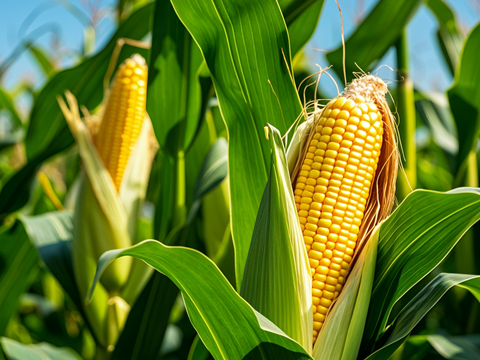
Corn Next has officially launched CornNext-17 - its bio-based material designed to replace traditional plastics and support global sustainability initiatives – accompanied by its CornNext-17 White Paper report.
Corn Next says the material, derived from renewable corn starch, utilizes a patented fermentation-based process to create a fully biodegradable material with ‘superior versatility and performance’. Unlike traditional plastics and bio-plastics such as PLA and PHA, CornNext-17 apparently retains its natural polysaccharide structure, enabling rapid decomposition within 30 days in natural environments while maintaining the mechanical properties necessary for diverse applications.
The material is said to be suitable for a range of applications including packaging, consumer goods, industrial components and creating compostable tableware, single-use products, food containers.
The company adds that the material can be used in retail, food and industrial applications due to its strength, flexibility, and resistance to heat and moisture. Other applications include the manufacturing of biodegradable mulch films, seedling trays, and irrigation components, and disposable medical supplies such as gloves, syringes and packaging.
Apparently, the new material can also be utilized in creating automotive components such as panels, trim, and interior parts and can replace certain plastic components in electronics, helping to reduce electronic waste.
Randy Yongzhong Zhang, founder and CEO of Corn Next, said: “We are proud to offer a solution that addresses the urgent need for environmentally friendly alternatives to conventional plastics. The development of CornNext-17 is guided by our vision to revolutionize how materials are used and discarded. As a fully natural biodegradable innovation, it marks not just a breakthrough in material science, but a significant milestone in humanity’s pursuit of a greener, more sustainable future.”
Last year, Google selected nine companies to test their innovations at its foodspaces as part of its Single-Use Plastics Challenge, with solutions including data-powered bulk food dispensers and edible cutlery. Incredible Eats’ cutlery made of wheat, oat, corn, chickpeas, and brown rice reportedly holds its shape for half an hour in a hot soup or cold dessert.
Later on in 2024, Mariam Jomha, marketing director at PreScouter, examined the key findings of the company’s report on fermentation chemicals and their role and applications in the packaging industry. This involved discussion of PLA, produced from renewable plant-based feedstocks such as corn and sugarcane, and PHA, which is synthesized by microorganisms.
If you liked this story, you might also enjoy:
The ultimate guide to the Packaging and Packaging Waste Regulation in 2024
How are the top brands progressing on packaging sustainability?
Sustainable Innovation Report 2024: Current trends and future priorities
Everything you need to know about global plastic sustainability regulation














No comments yet